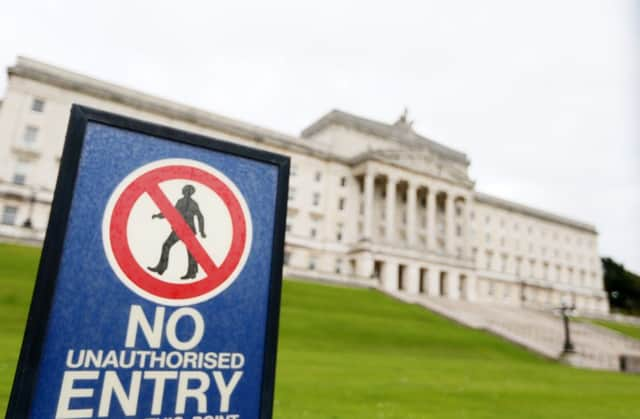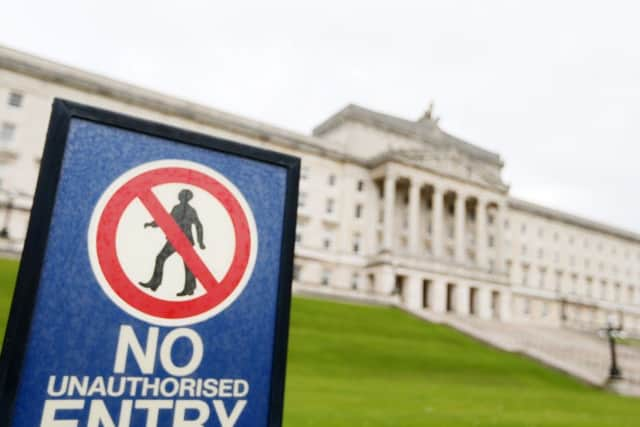MLAs have cost taxpayers £10 million since Stormont's collapse


The sum – which equates to about £37,000 a day – has been used to pay MLAs, to fund their pensions, to cover their expenses, to pay for some of their key party staff and to subsidise their breakfasts, lunches and dinners in Stormont’s restaurants.
The scale of the cost of a Stormont which hasn’t functioned for 270 days has increasingly come to the fore of political debate, particularly amid gloomy signs this week about the prospects of Stormont returning at any point in the immediate future.
Advertisement
Hide AdAdvertisement
Hide AdDespite just spending 46 minutes in the Assembly chamber since January 23, taxpayers have continued to pay MLAs and their staff as if devolved government was operating as usual. The only people who have financially suffered are ministers and their Spads, neither of whom have been in office since March and who therefore have not been paid.


Not all of the money goes directly to MLAs or parties – some is paid to landlords in order to rent constituency offices at public expense, for example – but it was all originally authorised in legislation based on the premise that devolution was in place.
Although they now have no legislative role, MLAs and their staff continue to assist constituents through their offices.
Last night Pat McCartan, the man who until last year chaired the body which set MLAs’ pay and the rules for their expenses, told the News Letter that “regrettably” under the legislation MLAs could continue to be paid “indefinitely” until the end of the five-year mandate, unless Secretary of State James Brokenshire intervenes.
Advertisement
Hide AdAdvertisement
Hide AdLast month the DUP leader, Arlene Foster, said that it was “offensive” to suggest that cutting MLAs’ pay might spur the DUP and Sinn Fein towards agreement.


But when Mr McCartan was asked whether in his years of discussions with MLAs about their salaries and expenses the issue played an important role in their calculations, he said: “I’m certain that it does.”
The figure of £10 million takes into account the fact that Stormont had 108 MLAs until March, when that number fell to 90.
Last month the News Letter revealed that MLAs had received a £500 inflationary salary increase in March and are in line for the same increase next March.
Advertisement
Hide AdAdvertisement
Hide AdThere is particular frustration among MLAs from the smaller parties because there is nothing which they can do to resurrect power-sharing. Rather, the nature of the joint offices of first minister and deputy first minister means that the Assembly cannot do its work if either the DUP or Sinn Fein refuse to take up their posts in the Executive.
On Wednesday, Mr Brokenshire said that he would examine MLA pay if devolution does not return, but gave no timeframe for a decision.